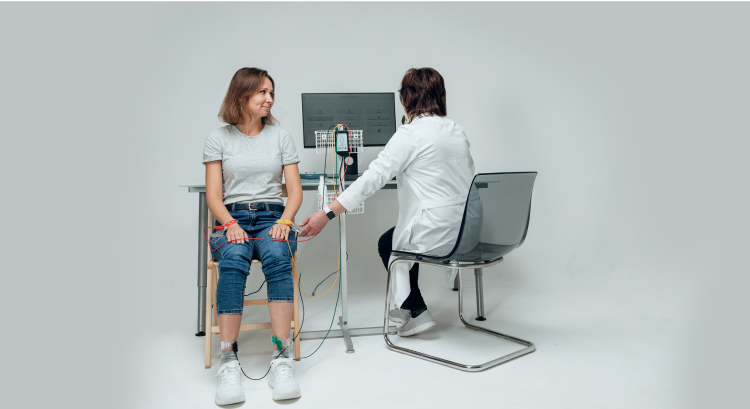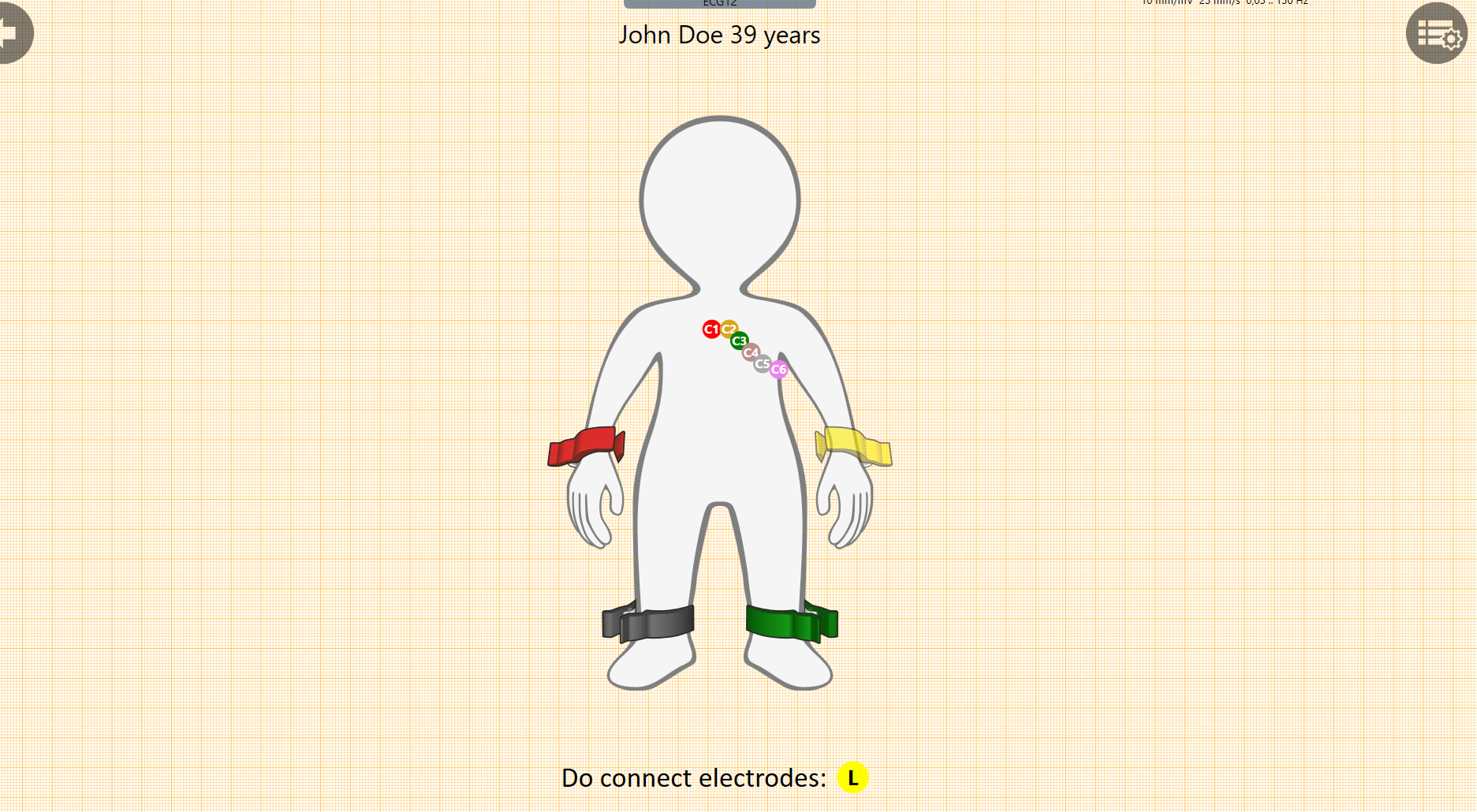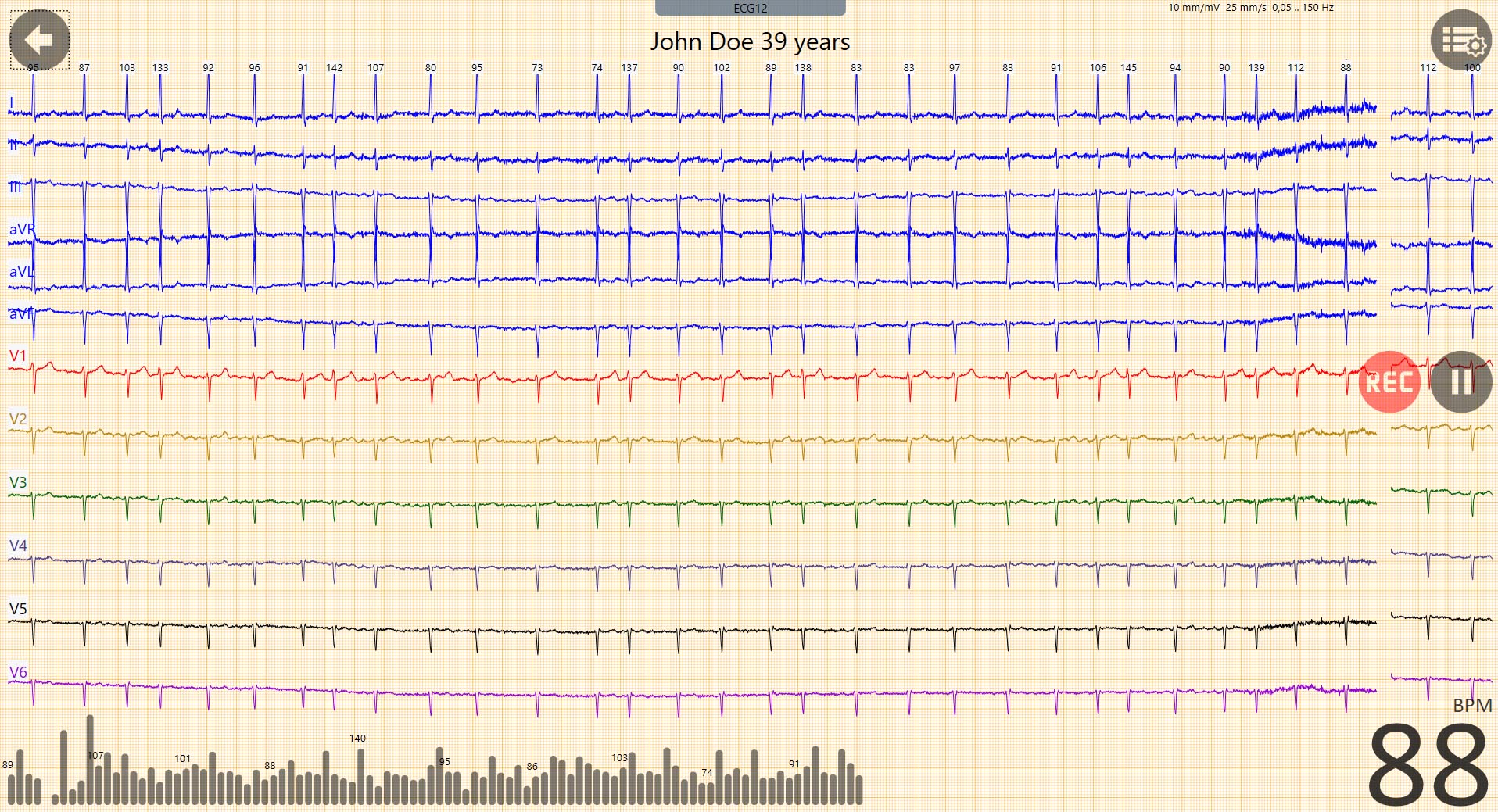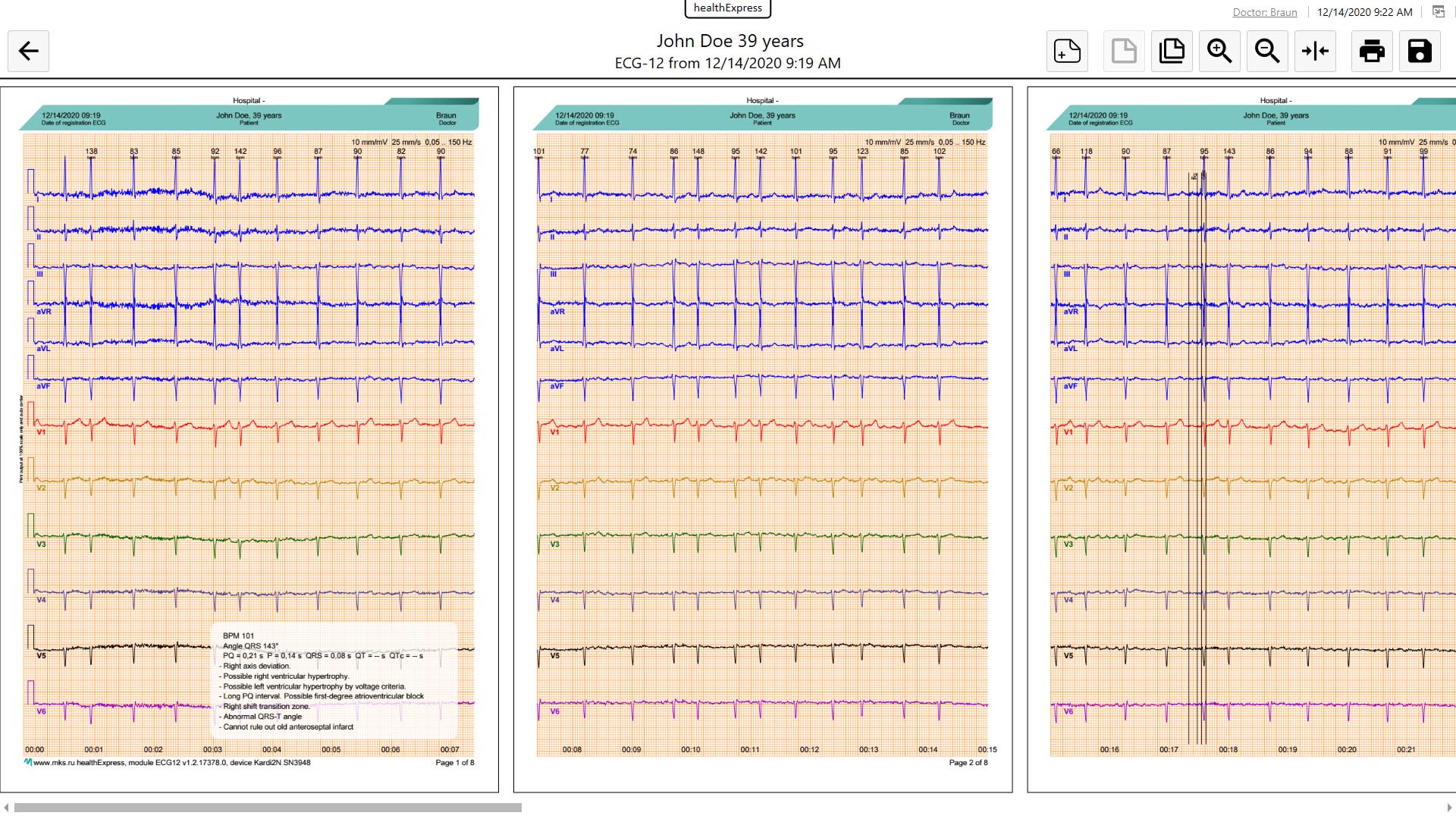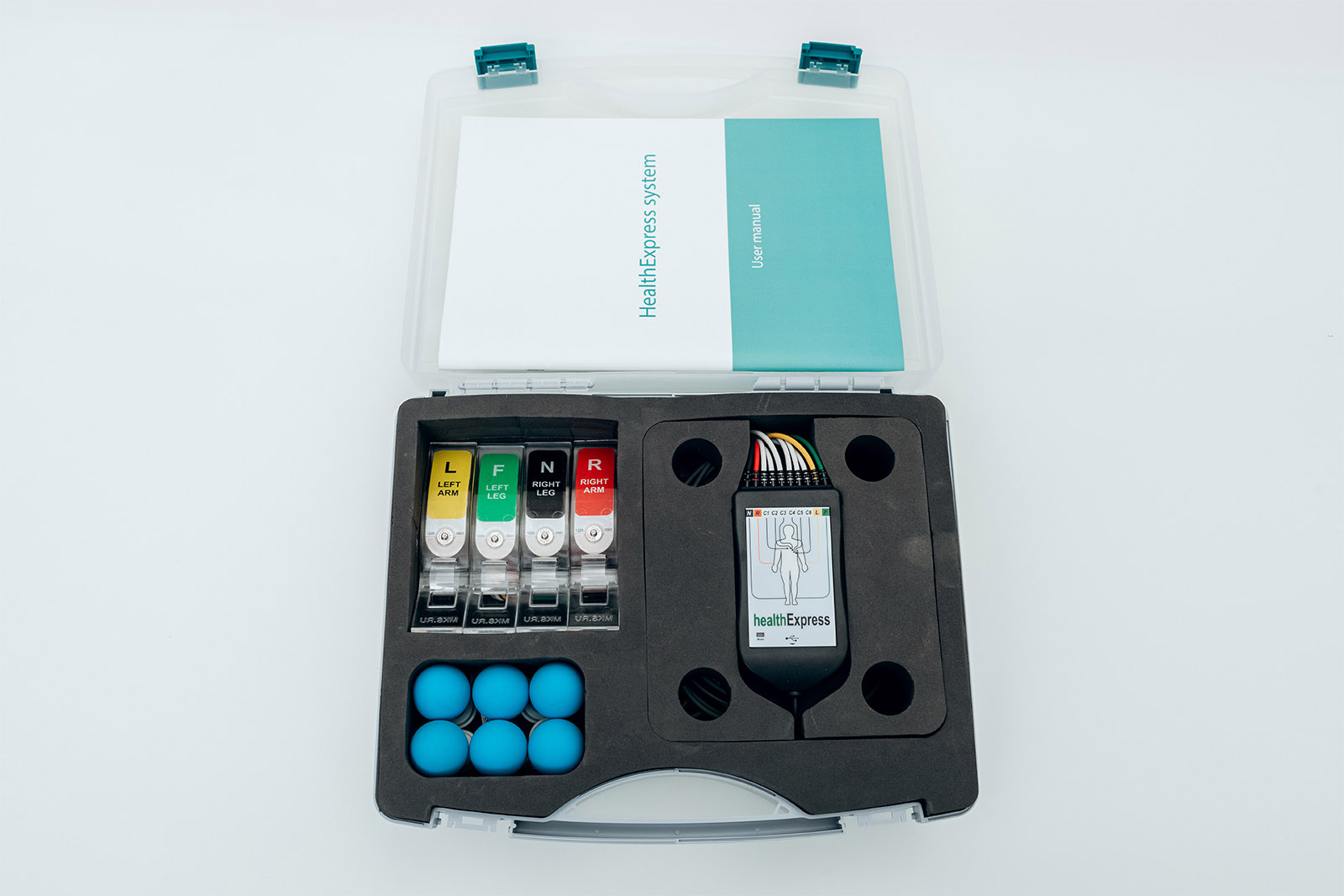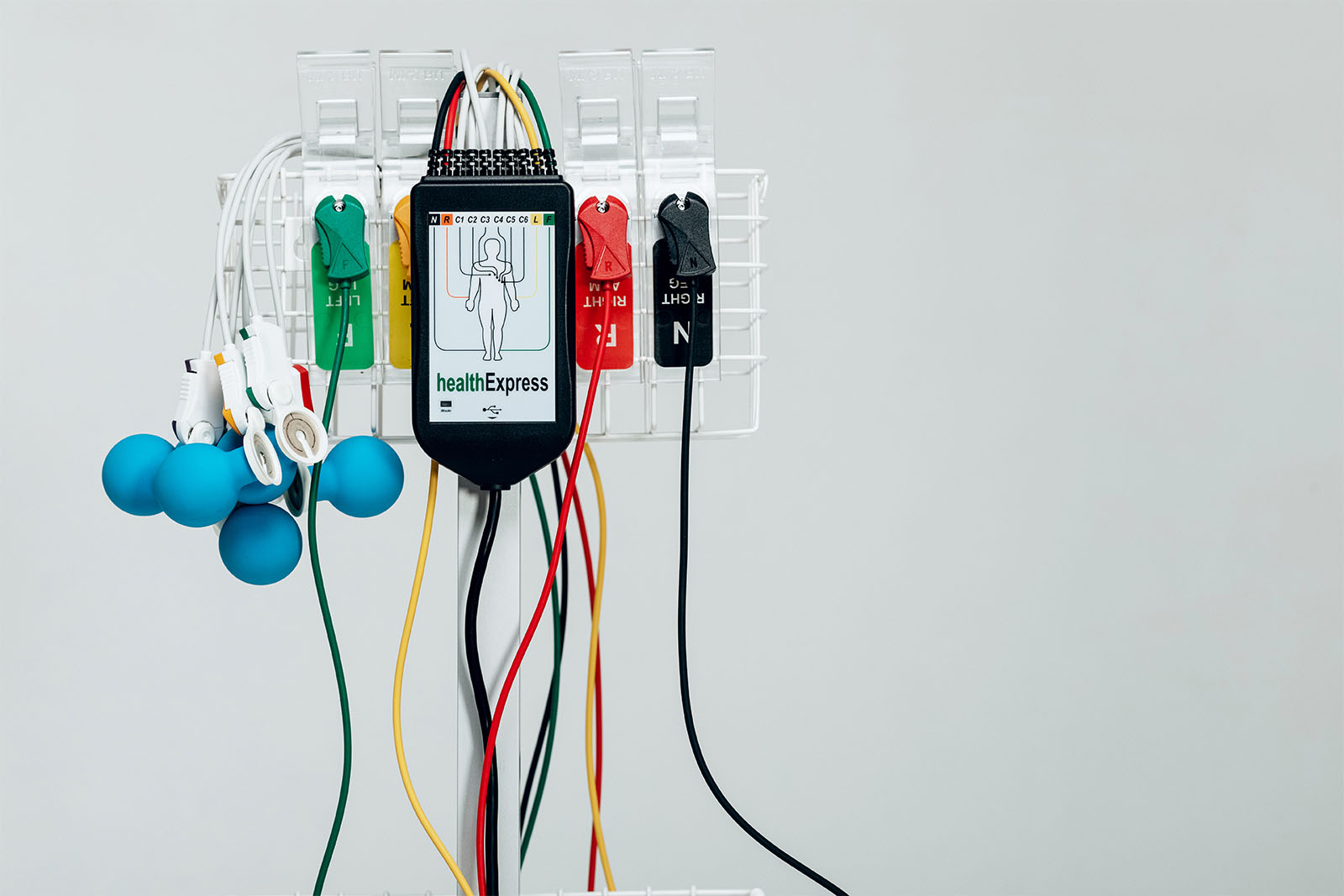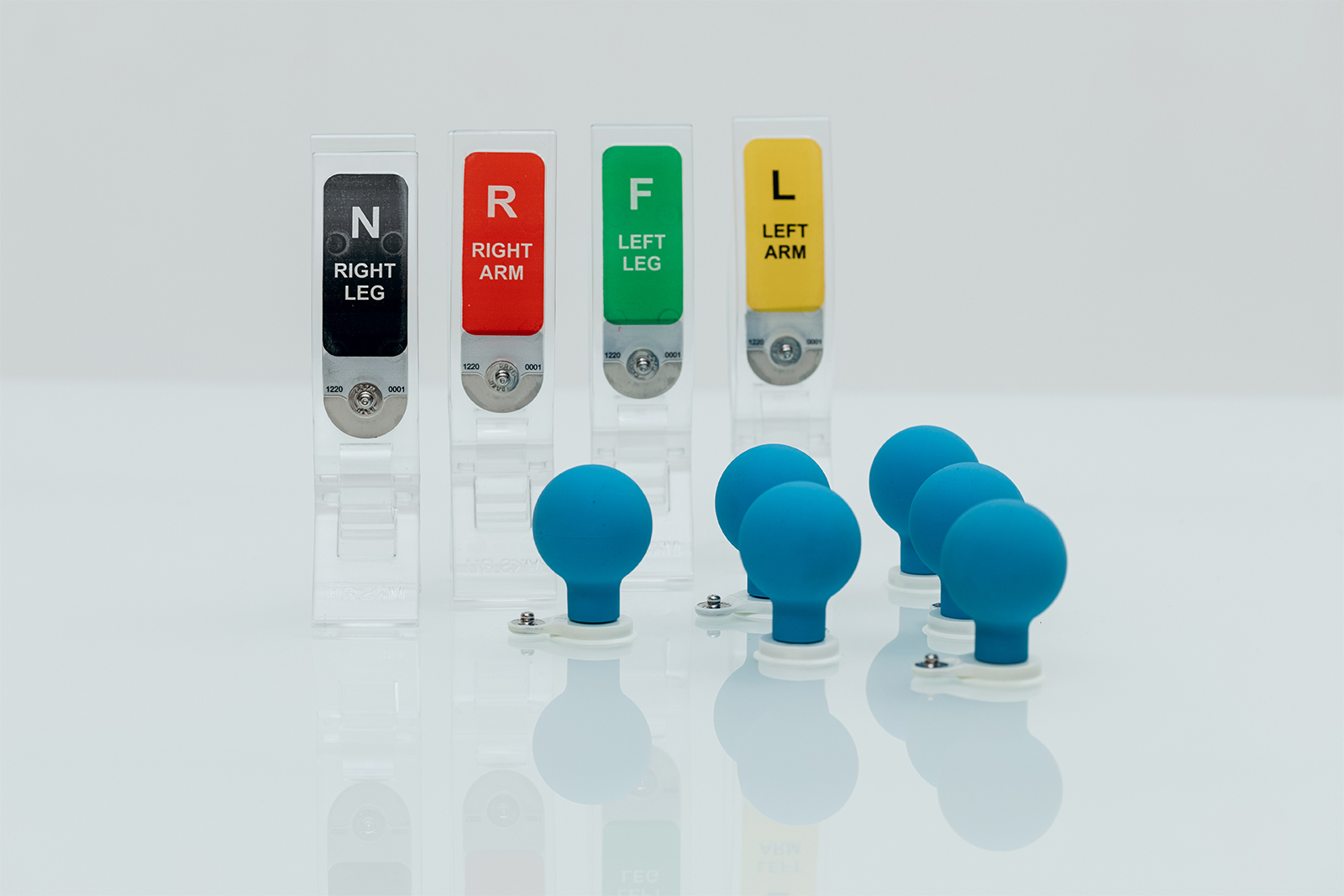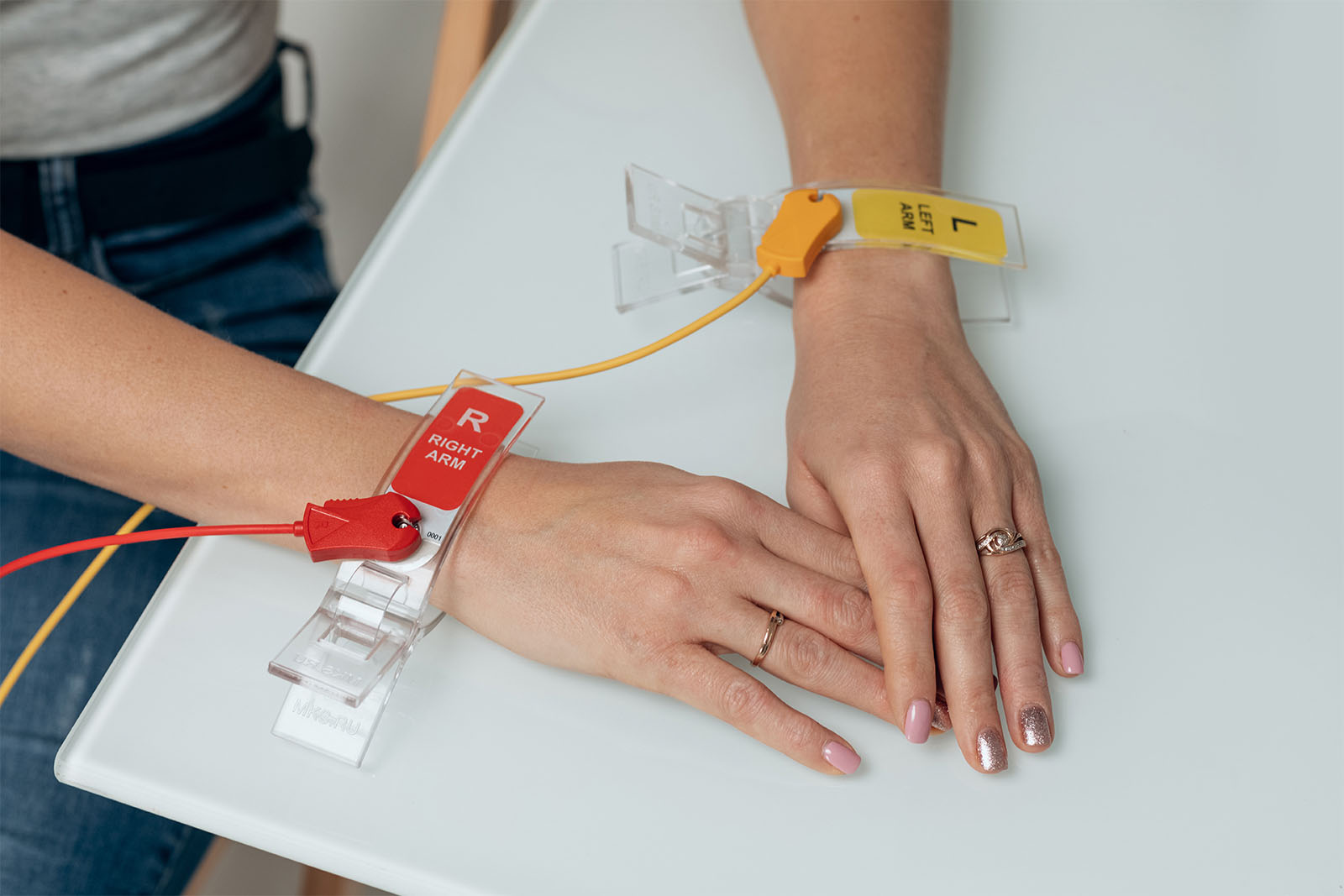OVERVIEW
The CARDi computer electrocardiograph is designed to register electrical potentials from cardiac activity in 6 and 12 standard ECG leads in patients of all age groups (newborns, children and adults), for routine ECG examination and for screening for preventive population examination and prenosological control.
Scope of application
- clinical, preventive and theoretical medicine;
- offices and departments of functional diagnostics;
- offices and departments of cardiology;
- general practitioner's offices, paramedic and obstetric centers, health centers;
- other medical organizations for the purpose of conducting ECG studies.
Indications
- diagnostics of cardiac function and heart condition;
- registration of the resting ECG in 6 or 12 standard leads with the formation of interpretative conclusions;
- registration of resting ECG in 6 standard leads sitting or lying down, non-invasive screening assessment of the heart condition (Cardiovisor technique) and/or the stress level of the body (Heart rate Variability analysis technique);
- identification of risk factors for the development of chronic noncommunicable diseases based on a questionnaire;
- assessment of cardiovascular risk factors on the SCORE scale based on a questionnaire;
- determination of performance and exercise tolerance under ECG control using bicycle ergometry (PWC170, RAMP protocol), step ergometry (PWC170, Harvard test) or squats (Rufier, Rufier-Dixon test).
SOFTWARE
The application software "Patient file "HEALTHExpress" is designed to organize the work and store data about doctors, patients and examination results.
The survey data is obtained and analyzed using plug-in software modules. The survey results and native data are stored in the card file database. The saved data can be opened at any time for viewing, printing, comparing, annotating, transferring to external electronic systems or sending by e-mail.
It is possible to organize access to the patient file from an external computer over a computer network. An RFID tag can be associated with the patient's card in the database to quickly search for the patient.

«ECG-12»
The ECG-12 software module is designed to perform routine ECG examinations. Based on the results of the examination, this module automatically generates a report in the form of an electronic document containing ECG graphs in a specified format, marks of IVR pulses, heart rate values, angle of rotation of the electric axis of the QRS vector, global intervals and durations, as well as interpretative conclusions and related data about the patient and the examination.

«HEALTH-EXPRESS»
The program module "Health Express" it is used for screening examination. In this type of examination, a resting ECG is recorded in a sitting or lying position with 4 electrodes placed on the limbs. The operator can choose the duration of registration: 30 seconds, 3 or 5 minutes. The examination report contains the parameters of a non-invasive screening assessment of the heart condition (the "Cardiovisor" technique) and the stress level of the body (the "Heart rate variability analysis" technique).

«SCORE»
The program module "Assessment of cardiovascular risk factors on the SCORE scale" is a program for computer-based questionnaires with automatic analysis and generation of an electronic report.

"Assessment of risk factors for NHS"
The program module "Assessment of risk factors of CND" is designed to conduct a survey (questionnaire) of citizens during medical examination to identify chronic non-communicable diseases, risk factors for their development, consumption of narcotic drugs and psychotropic substances without a doctor's appointment and making a conclusion based on the results obtained.

«KARDI2N2EMIAS»
The software module "KARDI2N2EMIAS" provides the possibility of operation of a computer-based CARDi electrocardiograph under the control of an ECG imaging component that is part of the EMIAS.

«STRESS TEST»
The Stress Test software module is designed to conduct stress testing with continuous ECG monitoring in practically healthy people with risk factors and in athletes at the stages of sports specialization or improvement of sports skills.
SPECIFICATION
| Parameter | Value | |
| KARDi 2/4 | KARDi 2 | |
| ECG leads | 6 standard:I, II, III, aVR, aVL, aVF | 12 standard: I, II, III, aVR, aVF, aVL, V1, V2, V3, V4, V5, V6 |
| Lead cable length | 1.5 m for R, L, F, N | 1.5 m for R, L, F, N 1.2 m for С1, С2, C3, C4, C5, С6 |
| Connectors for connecting ECG electrodes in the patient cable | “Clamp” type with a protective resistor of 10 kOhm ±5% (except for N electrode). | |
| Input stages | DC amplifiers | |
| Input signal dynamic range | ± 410 mV | |
| Input impedance | not less than 40 MΩ (relative to N-electrode) | |
| Internal noise voltage | no more than 20 uVp-p for 0.05‑30 Hz band | |
| Resolution | 24 | |
| Checking the electrode connection | during ECG recording using direct current measurements | |
| Defibrillator impulse protection. | Available (into the cabling connectors excluding N-electrode) | |
| Power | + 5 V, from the USB interface power lines, current consumption no more than 130 mA | |
| PC interface | USB 2.0, full-speed | |
| USB cable length | 3 mm | |
| Dimensions without cable (LxWxH) | 125 x 65 x 25 mm | |
| Weight including cables | < 400 g | |


